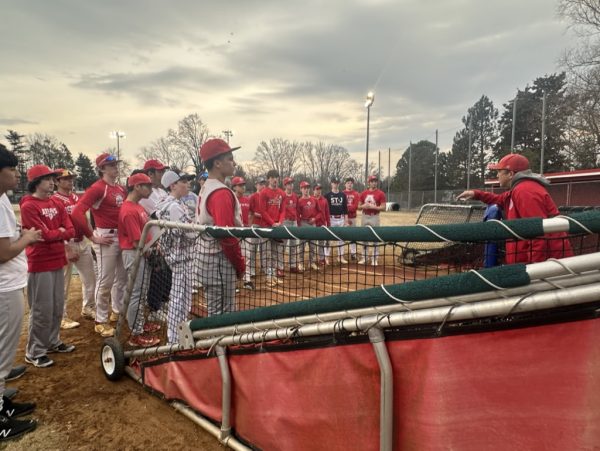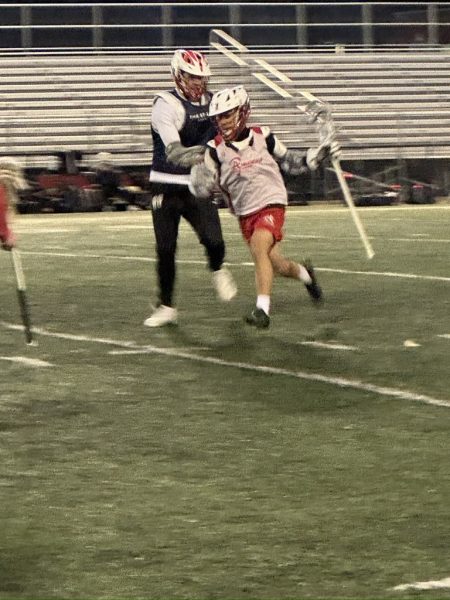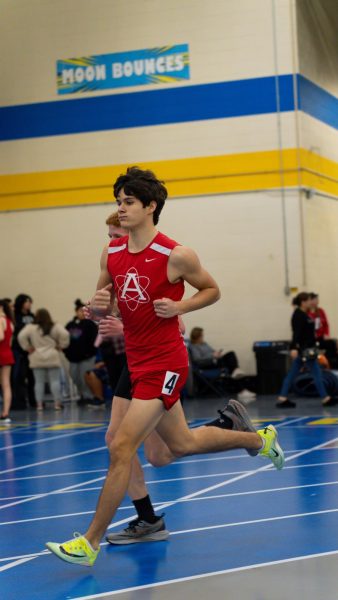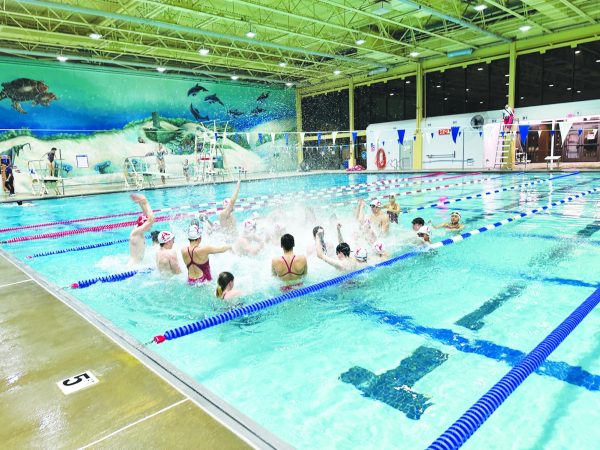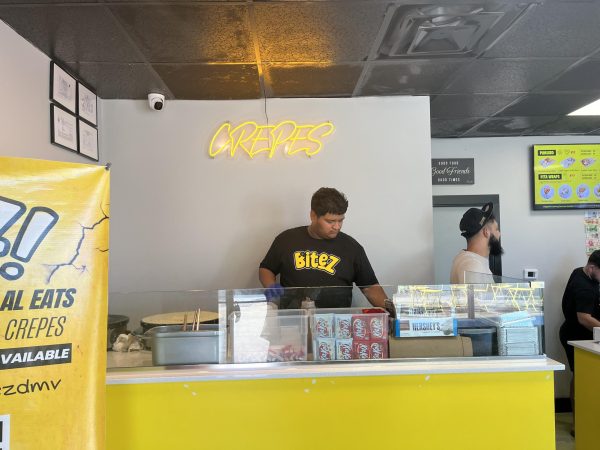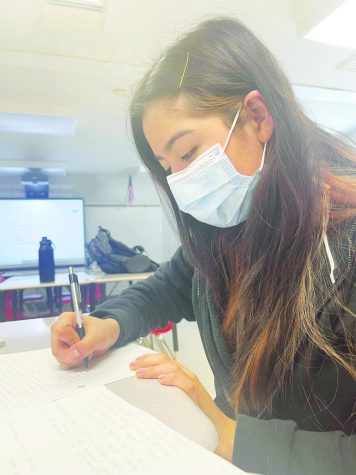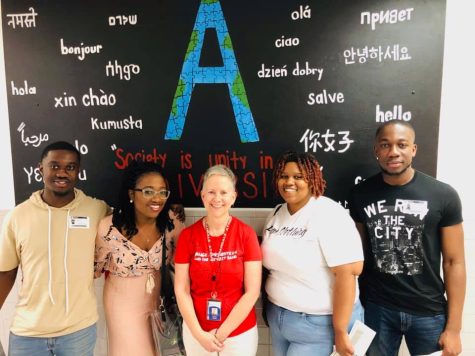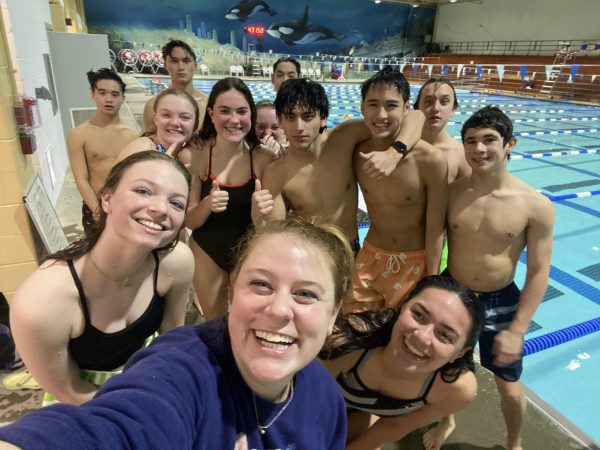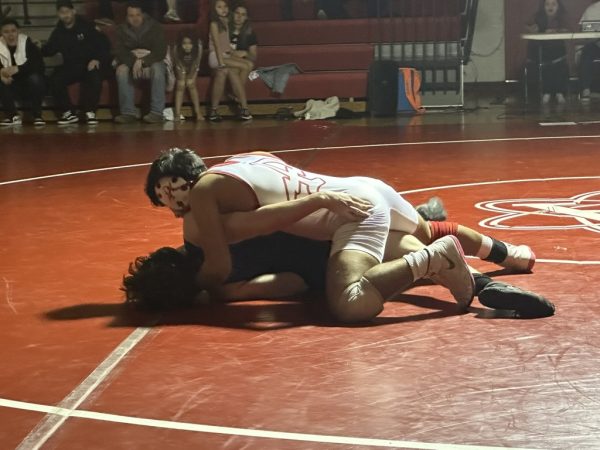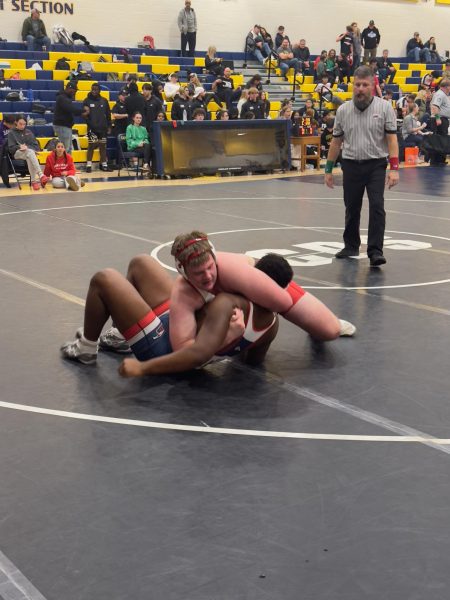Martial arts adapts to Covid-19
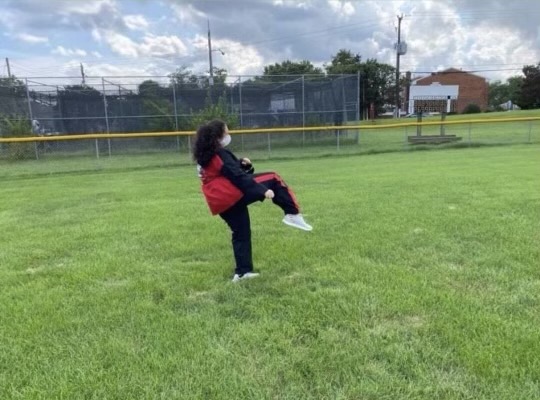
Freshman Sibyl Dauer practices her martial arts skills in an empty field.
Covid-19 has put a stop to many normals in our everyday lives. School, activities and just about everything has changed, arguably for the worst. A regular norm in my life was my Karate class every Wednesday and Sunday at Mas DC. When the virus came around, many things turned virtual and karate was no exception.
Many martial arts started training on Zoom. The Eagle Taekwondo Academy located in Bradlick Shopping Center was one of many dojos that closed shop during the pandemic. Many of my neighbors used to go to this dojo regularly and now their martial arts classes are virtual.
When the virus became an official issue, my Karate class came to a sudden stop for a couple weeks until our Sensei started Zoom meetings. When we were doing Karate virtually we would generally do warmups then move on to reviewing everything we learned in the past. When I was in these meetings, I came across many cons. The sole idea of having Karate virtually just doesn’t work. Karate is a martial art that needs to be learned in person. For example, when sparring or learning self defense techniques, you need partners and physical contact or else it doesn’t work. Due to this, we usually had to resort to exercises to keep us in shape, basics of what we learned and constant revision of our old techniques. We didn’t have much new material due to the situation at hand.
My Sensei, Hossam Hamed, would go through many issues during the meets himself. On the technical end, they needed to make sure they had the right equipment for camera work, a good streaming platform and strong connections. Teaching the students itself came with its own set of difficulties.
“Learning online may be very difficult when it comes to a primarily contact sport and discipline,” Hamed said. “We had to tailor a lot of the lessons on physical fitness and individual techniques that can be done without complex instruction and equipment.”
During the classes, instructors have to make sure you’re performing the move, drill or technique right and have to find a way to maintain the attention span of younger students.
The virtual meetings aren’t the only difficulty faced. Sadly, the number of students decreased at not only Sensei Hossam’s dojo but other dojos as well due to Covid.
“We started out with a drastically lower number than in our in person class,” Hamed said. “Although we still had a surprisingly unexpected amount of students who participated in the beginning, it was still nowhere close to our numbers in a real class setting. Unfortunately, that number continued to decrease.”
Currently, dojos have brought back some students for in person martial arts. Freshman Sibyl Dauer is a black belt in Taekwondo and is on the demo team. She and the rest of her peers have been slowly transitioning back to in-person Taekwondo.
“There are some in-person classes now along with online,” Dauer said. “I go to one class a week unless I miss a class.”
My Sensei and his team are working to bring back martial arts, while handling many regulations and compromises.
“God willing, once the vaccine comes out, with a restricted amount of students and distance, we may be able to get back in the classroom,” Hamed said. “However, it may not be as soon as we would like.”
They also plan on training outside during good weather and if there are siblings, they will work together to get hands-on experience. Students will also maintain constant sanitation.
When I started doing my Karate virtually I had two things in mind: how I am going to achieve my next belt and how I will remember past techniques. Karate belt testing is a rigorous process that involves lots of endurance. During the tests, you need to experience pressure, fatigue and surprise attacks.
You have a judging table and someone yelling and pressuring you constantly. The point of this experience is to build discipline and strength in difficult situations. In the last Karate exam I experienced, I had a surprise attack by one of the students. During this attack, they aimed to choke me. To escape the grasp, I had to apply my self defense I learned and escape her hold. In summary, the test needs physical contact so I was worried about how we will progress.
“We will need to implement a new curriculum and a different method of learning to be able to teach the students the core materials that they need to learn and we will have to do individual virtual online testing,” Hamed said.
Sensei reminded me and the rest of the students constantly during the virtual meets to review all of the videos from the past lessons and to constantly train on the materials that they already know. This includes Calisthenics, kata, sparring techniques, drills, as well as the academic portion. Using this method really helps to ensure the rest of the students and I remember the content taught in the dojo.
Despite everything, the world has found ways to progress and keep going and so has Karate. I know this is a difficult time for all of us and we will all make it out.
“We just need to practice safe measures, keep social distancing, follow the science, and train in any way you can,” Hamed said. “Inshallah things will get better.”
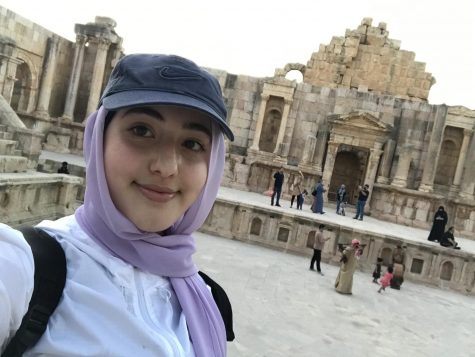
Sophomore Leen Alawneh is in her second year in The A-Blast. Before Annandale she went to Poe and was a writer on The Poest. In her free time she likes...



